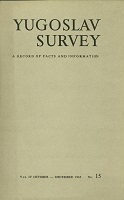
We kindly inform you that, as long as the subject affiliation of our 300.000+ articles is in progress, you might get unsufficient or no results on your third level or second level search. In this case, please broaden your search criteria.

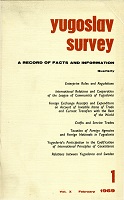
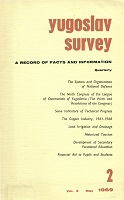
Yugoslavia’s annual rainfall varies considerably in different parts of the country — from 18.5 inches (central Macedonia) to over 157 inches (Crkvice) — and in summer insolation and temperatures are both high. Due to the unfavorable distribution of rainfall, particularly because of insufficient rain in the period of vegetation, especially from June to September, almost all crop lands in Yugoslavia (with the exception of Slovenia) suffer from lack of moisture for agricultural production and are often affected by drought. On the other hand, excessive quantities of surface and underground waters in the potentially most fertile flat lands also have an adverse effect on air-water relationships and hinder intensive production.
More...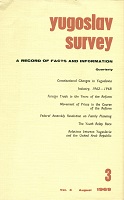
In Yugoslavia there are seven manufacturing enterprises specializing exclusively in sporting goods. They are: Kombinat Sport — Belgrade, Tovarna sportskog orođa Elan — Begunje na Gorenjskom, Sport Heruc — Zagreb, Bosna-sport — Sarajevo, Makedonija-sport — Skopje, Sport-oprema — Vižmarije near Ljubljana, and Zvezda — Belgrade.
More...
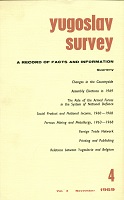
In the period 1963—1968, output of ferrous mining and metallurgy grew at an average annual rate of 6 per cent 1, showing, however, considerable fluctuations as a result of the commissioning of new plants and the varied effect of some measures of the Economic Reform. Steel consumption mounted relatively slowly and even stagnated in the last few years of the period under survey, due to a change in the structure of production in major steel-consuming sectors and a slowing rise in investment in general.
More...
Municipal public transport is carried by specialized transport organizations which operate as independent business enterprises, in contrast to the prewar and early postwar periods when, like other public utilities (water, electricity and gas, garbage collection, etc.), they operated as budget-financed institutions. They are, however, still to some extent controlled by municipal assemblies, especially with regard to fixing maximum fares.
More...
The rapid increase in the supply of consumer goods, higher individual purchasing power, the transformation of the economic-social structure, and substantial shifts in prices and price relations have in the last 15 years brought about considerable changes in the structure of personal consumption. (Tables I and II).
More...
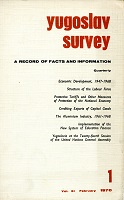
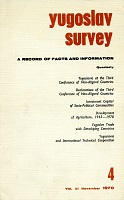
Throughout the postwar period cottage industries have developed in Yugoslavia without their place and status being legaly defined, without any determined line of policy, and with no efforts being made to make use of the possibilities of this sector of economic activity. All that has been done so far has been confined to attempts to formulate a precise definition of what such industries are, or rather, to draw a border line between cottage industries, handicrafts and small-scale industries by drafting a kind of nomenclature concerning their activities. Such attempts, however, have turned out to be largely impossible since the same kinds of articles are manufactured by industry proper, crafts and cottage industries. There have also been attempts to confine cottage industries to products of a markedly folklore character, which is not in line with the present development of these activities in the broader sense of the word, even though this is exactly what most cottage industries produce.
More...

The article aspires to provide a short review of the particular crucial periods of economic development of the Slovak part within the Austro-Hungarian Monarchy. A short in-depth analysis takes into consideration all those decisive factors such as social, political, and economic, the interconnection of which impacted territorial industrial and agriculture progress from the Theresian reforms through the oncoming periods up to the beginning of the 19th century. Thanks to the involvement of relevant qualitative and quantitative data, the research is supposed to highlight prime causes, landmarks that significantly contributed to political and economic transformation of this region thus changing its geopolitical role, status and influence, plus which, at the same time, helped the Monarchy play a more important part within Central European region of that time.
More...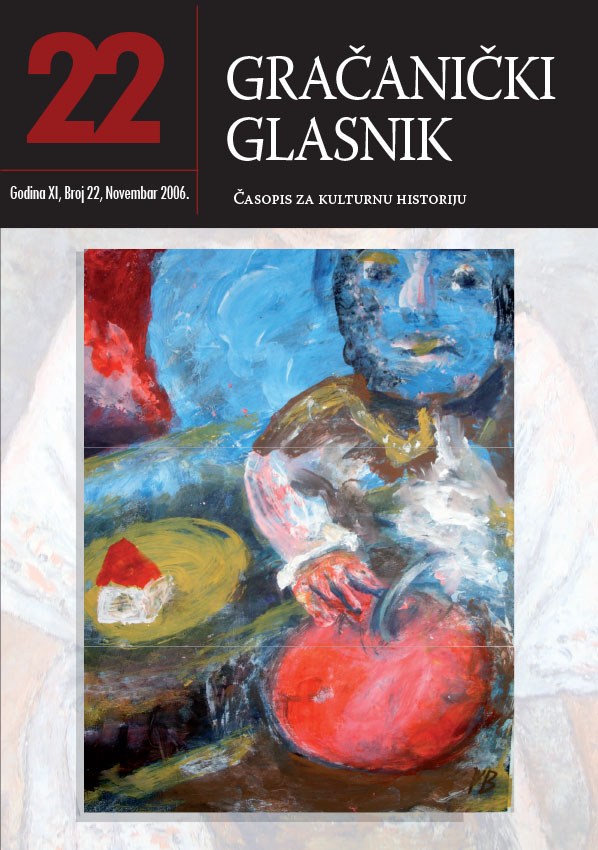
Počeci preduzeća za preradu plastike, trgovinu i uvoz-izvoz “Variplast” Gračanica sežu u daleku 1983. godinu, kada je pod tim istim nazivom u jednoj garaži u Malešićima utemeljena mala samostalna zanatska radnja za izradu vrećica (poznate “tregerice”) od PE (polietilenske) folije. Prethodno je iz te garaže “istjeran” stari dotrajali “Fićo”, za kojeg se i danas tvrdi da je to bio automobil generacije “koja je upamtila Drugi svjetski rat”. Razvojni put ove firme poklapa se sa ekspanzijom male privrede u Gračanici, posebno prerade plastike, po kojoj je Gračanica bila, prije ovog, posljednjeg rata “rame uz rame” Staroj Pazovi, čiji se privatni biznis isticao za primjer u nekadašnjoj državi.
More...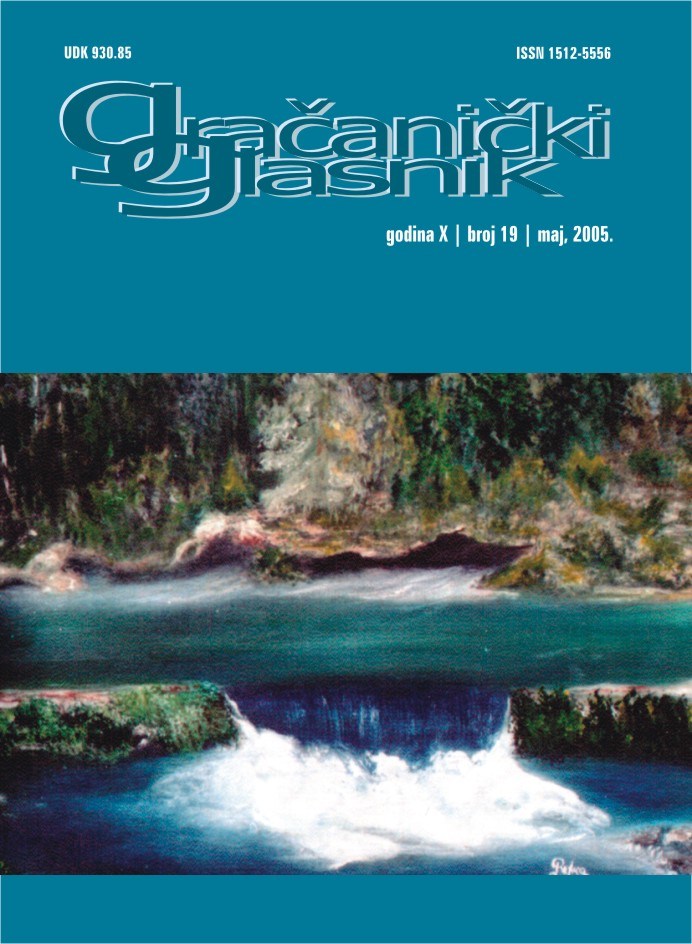
Istorijat gračaničkog štamparstva seže u vrijeme koje je neposredno prethodilo zvaničnom osnivanju štamparskog preduzeća, u godinu 1958., koja je u Gračanici upamćena, između ostalog, i po propasti mnogih privrednih preduzeća – patuljaka koje je osnivala i “likvidirala” još uvijek “tvrda” državno-partijska birokratija po svom nahođenju i po svom znanju i više neznanju, ubijeđena da to radi za dobrobit naroda.
More...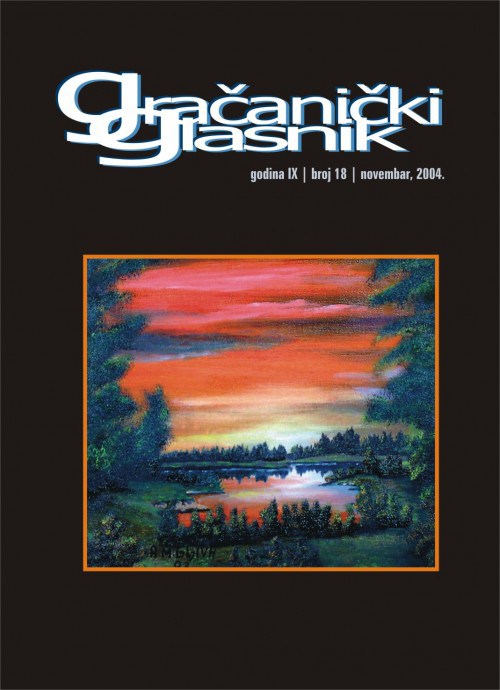
U našoj historiografiji uopće, pa i takozvanoj lokalnoj, Gračanica i njena okolina u periodu između dva svjetska rata nije bila predmet ozbiljnijih istraživanja. Malo je objavljeno radova o Gračanici koji se bave tim periodom. Osobito je nedovoljno istražena uloga i značaj nekih istaknutih Gračanlija. U nizu značajnih imena ističe se ime Sabrije Prohića, kojeg narodno pamćenje svrstava u znamenitije ličnosti novije gračaničke prošlosti.
More...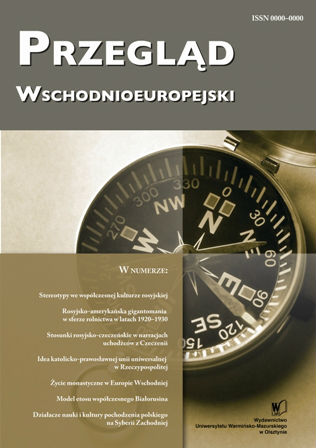
Wladysław Marian Zawadzki (1885–1939), was born in Vilno, Polish economist, Minister of Treasure (1932–1935), pioneered mathematical economics in Poland (the Walrasian mathematical economist). The conservative professor of economics at the School of Commerce (SGH) in Warsaw and the Stefan Batory University of Wilno (1919–1931). The SGH had at this time the stronger team of theoreticians. It was led by Wladyslaw Zawadzki. He was a very thorough exposition of J.M. Keynes’s monetary analisis, contrasting it with his earlier ideas in the Treatise on Money and the Tract on Monetary Reform. Zawadzki regretted Keynes’s etatism but comforted himself and his readers that Keynes had changed his mind at least twice before The General Theory.
More...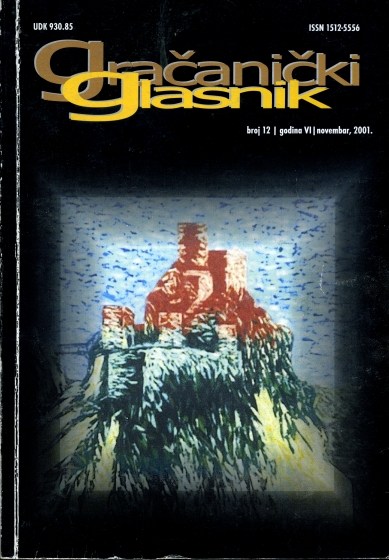
Uzvišeni Allah samo znade o čemu je razmišljao u trenutku posljednje svoje odluke, 23. jula 2001. godine, svodeći «bilans stanja» i «bilans uspjeha» vlastitog života, tražeći izlaz u bezizlazu, nesreća, slom? Nema definicije, samo pitanja - bez odgovora, čuđenje. Sudbina, kazu, golema nevolja sa sobom, posljednji obračun - prije ništavila - i opet pitanje s kime?
More...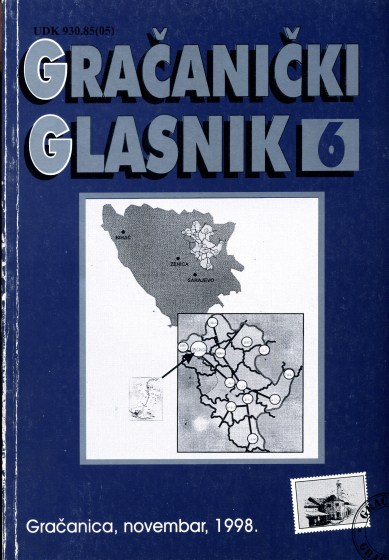
Drvna-industrijsko preduzeće "Jadrina" u Gračanici formirana je polovinom 1964. godine integracijom pilane Bosanska Petrovo Selo, pilane Karanovac i stolarsko-tapetarskog pogona tadašnjeg zanatskog preduzeća "Partizan" u Gračanici. Stoga ćemo se ovdje osvrnuti na njihov razvoj prije udruživanja i osnivanja "Jadrine".
More...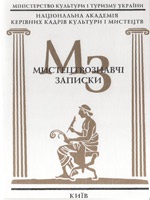
The research is related to the definition of style and level of artistic performance products made by jeweler J. Marshak during the whole period of its existence (1878– 1918). The field of the research is also covers the including products of other jewelry companies in Europe and the Russian Empire of the indicated period, which have been realized through the J. Marshak's company. This work is written, based on the items from the museum and the private collections, publications of the early twentieth century and existing products in today's antique market. To achieve the main purpose of the article we should do the following tasks. Among them the most important tasks are to study the assortment silverware, manufactured at J.Marshak's factory and to definite the ornamental elements of artistic and historical styles in decorating silverware and trends in the style formation of the factory. Methodology. The research methodology is based on the application of scientific and special methods of art criticism. The combination of such methods as comparative, historical, formal stylistic, formal iconographic, comparative stylistic, and artstylistic analysis allow us to define similarities and differences of the style of J. Marshak's factory silverware items and products of jewelry firms, located in the Russian Empire and Europe. Scientific Novelty. The scientific novelty is consisted in scientific research of silverware objects, produced by J. Marshak's jewelry company and other jewelry firms, having a commercial relations with Marshak's firm from the last quarter of XIX to the beginning of XX centuries.
More...